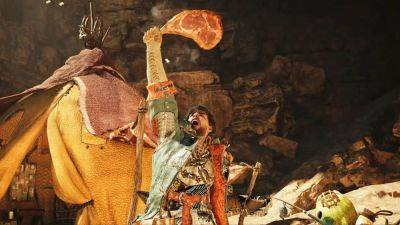Valve unintentionally set the stage for today's digital economic hellscape, according to its former economist in residence
In an interview with Aftermath, Yanis Varoufakis, former economist in residence at Valve, says that the company unintentionally prototyped the digital economic hellscape we're currently forced to languish under. That hellscape is the subject of his book Technofeudalism: What Killed Capitalism, published earlier this year, and it's one he says he helped create.
As Varoufakis describes it, we no longer live under capitalism. Instead, he says we're in the age of «technofeudalism,» a condition which emerged from and supplanted capitalism. The essential feature of this new era, according to the economist, are algorithmic fiefdoms that masquerade as marketplaces, extracting rent and dictating the terms of exchange while producing none of the goods themselves. Amazon is a prime example, as is Apple's App Store.
Varoufakis says that, during his time at Valve, the company's development of a platform that incorporated, structured, and monetized community exchange like the TF2 hat trade helped pave the way for the digital fiefdoms to follow. Valve's implementation of its in-game stores and the Steam marketplace, Varoufakis says, emerged from a need to balance monetization with a fear that if the company didn't create its own systems for exchange between players, they would «take it outside, and then it will be completely impossible to regulate.»
Varoufakis acknowledged that if Valve was part of the transition into technofeudalism, he had a hand in the process. As he told Aftermath, Valve's monetization strategies were informed by his work to examine those player economies and advise on how to manage their stability.
«My main project was to study the economy—to work out its dynamics, to work out what determined prices, what determined the distribution of incomes,» Varoufakis said. Valve's fear was that, if it didn't wrangle the unregulated aftermarkets for in-game commodities, it risked financial and legal chaos that would be «detrimental to the interests of the company.»
In







